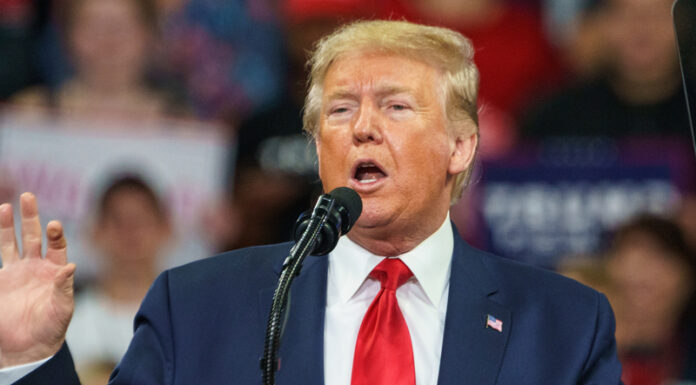President Donald Trump’s agenda faced significant setbacks on Thursday when three federal judges ruled against key elements of his policy initiatives in a single day. The rulings challenge Trump’s efforts on immigration enforcement, voting procedures, and diversity programs in education.
In San Francisco, U.S. District Judge William Orrick barred the administration from withholding federal funds from “sanctuary” cities and counties across the United States. The judge ruled that the federal government is prohibited “from directly or indirectly taking any action to withhold, freeze, or condition federal funds” to these jurisdictions.
Judge Orrick determined that portions of Trump’s executive orders violate the Fifth Amendment as they are “unconstitutionally vague and violate due process.” The lawsuit was filed by 16 cities and counties, including San Francisco, Seattle and King County in Washington; Portland, Oregon; Minneapolis and St. Paul, Minnesota; New Haven, Connecticut; and Santa Fe, New Mexico.
The affected jurisdictions had argued that the threat to withhold funding would cause “irreparable injury” in the form of budgetary uncertainty and undermine trust between local governments and their communities, according to court documents.
This marks the second time Judge Orrick has blocked a similar executive order targeting sanctuary jurisdictions. The previous ruling was upheld by the 9th U.S. Circuit Court of Appeals, according to court records.
In Washington, D.C., another federal judge pressed pause on a key component of Trump’s bid to enforce sweeping changes to voting and election registration. Judge Colleen Kollar-Kotelly, appointed by former President Bill Clinton, issued a 120-page opinion putting on hold an executive order that would have required people to produce documentation proving their citizenship before voting.
“Our Constitution entrusts Congress and the States—not the President—with the authority to regulate federal elections,” Judge Kollar-Kotelly wrote. She admonished Trump, noting that he could not “short-circuit” Congress in this matter.
In Concord, New Hampshire, U.S. District Court Judge Landya McCafferty delivered the third blow to the administration by blocking efforts to cut funding to schools with diversity, equity, and inclusion (DEI) programs. This ruling came in response to a lawsuit filed by the National Education Association and the American Civil Liberties Union (ACLU), which accused the administration of violating teachers’ due process and First Amendment rights.
Judge McCafferty criticized the education department for failing to “even define what a ‘DEI program’ is” when issuing directives to schools. “A professor runs afoul of the 2025 Letter if she expresses the view in her teaching that structural racism exists in America, but does not do so if she denies structural racism’s existence. That is textbook viewpoint discrimination,” she stated in her ruling.
The ruling aligns with concerns raised in a broader legal challenge by 19 states against the Trump administration’s threat to withhold over $13.8 billion in funding from schools that maintain DEI initiatives. State officials argue these programs are legal and help students feel safe and supported.
Legal experts have noted that the three rulings by different judges across the country suggest systematic problems with the administration’s approach rather than isolated judicial disagreements. “The data indicates that the rulings against the Trump administration come from a diverse set of district courts and judges, not just ‘rogue’ or ‘far-left’ judges,” according to legal analysis of the pattern of court challenges.
The legal defeats came just one day after Trump expressed frustration with the judiciary during an interview with conservative commentator Glenn Beck. In that conversation, the president agreed with Senator Mike Lee’s characterization that judges insisting on due process for immigrant deportees were engaging in a form of “judicial insurrection.”
During the interview, Trump expressed his view that the requirement for individual court cases for deportations was impractical. “When you have to get out and do court cases for individual people, and you would have in theory millions of court cases… They’re really saying you’re not allowed to do what I was elected to do,” he said.
The Justice Department has indicated it plans to appeal the sanctuary cities ruling. A spokesperson remarked that the administration would continue fighting in court to defend policies that restrict federal funding to jurisdictions they claim protect “criminal illegal aliens.”
Legal analysts suggest these cases may eventually reach the Supreme Court, as they involve fundamental questions about executive authority and the constitutional separation of powers. Previous court rulings on similar issues have been split, with different federal appeals courts reaching opposing conclusions about the administration’s authority to withhold grants from sanctuary cities.
The ongoing legal battles highlight growing tensions between the executive branch and judiciary that some experts have characterized as approaching a constitutional inflection point. As the administration continues to implement its policy agenda through executive actions, the courts remain a significant check on presidential power.








